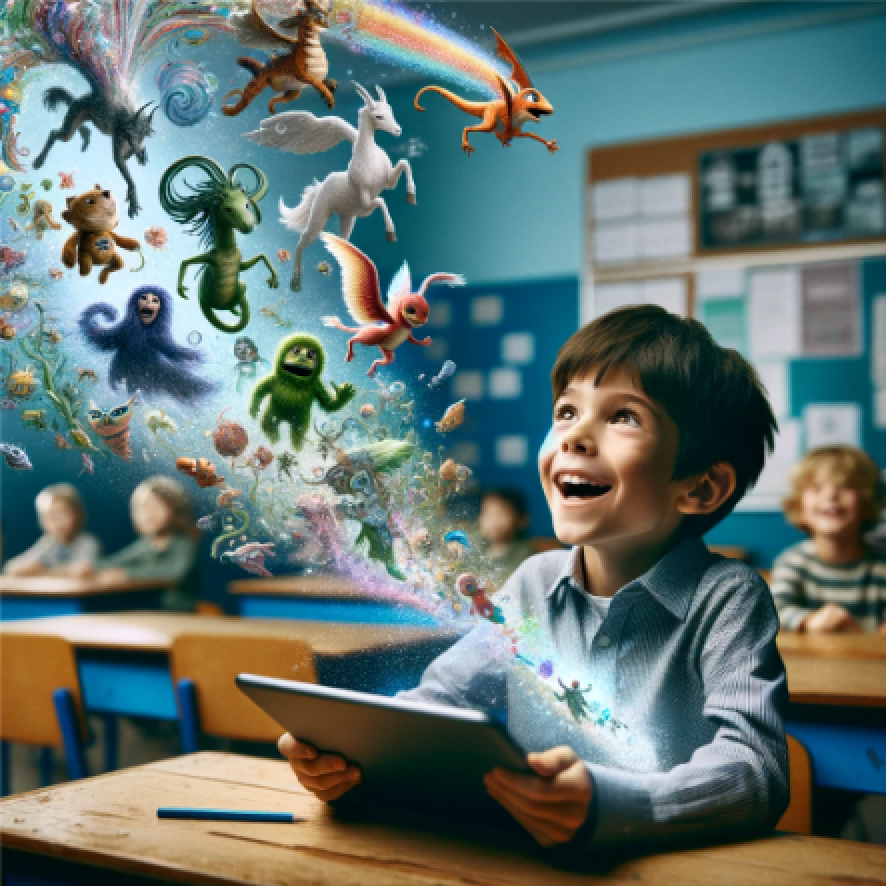How AI Supports Mental Health in Neurodivergent Children
The integration of Artificial Intelligence (AI) into daily life has unlocked potential benefits in various sectors, including education and mental health. For neurodivergent children—those with conditions like ADHD, autism, and dyspraxia—AI can be particularly transformative. By offering tailored support and interactive experiences, AI technologies can help mitigate some of the mental health challenges these children often face. AI mental health interventions is where cutting edge technology can be a powerful tool for mental health, especially for our neurodivergent children.
The Intersection of Neurodivergence and Mental Health
Neurodivergent children are more likely to experience mental health issues than their neurotypical peers. The statistics are telling:
- Nearly three in 10 children diagnosed with ADHD also have an anxiety disorder.[1]
- Children as young as 3-4 years old with dyspraxia (developmental coordination disorder) experience higher rates of anxiety compared to their peers without a diagnosis.[1]
- Autism has been associated with higher rates of anxiety, eating disorders, gender dysphoria, mood disorders, obsessive-compulsive disorder, personality disorders, schizophrenia, and substance misuse disorders.[1]
These statistics highlight the complex interplay between neurodevelopmental disorders and mental health challenges. It's clear that tailored interventions are necessary to address the unique needs of these children.

Innovative AI Solutions for Neurodivergent Children
AI technology offers innovative approaches to addressing the unique mental health challenges faced by neurodivergent children. Its applications span from educational support to therapeutic interventions, enhancing communication, and ensuring continuous support. Here’s a detailed look at how AI can transform the support system for these children:
Personalized Learning and Therapy via AI
AI’s ability to customize learning and therapeutic content is one of its strongest assets in supporting neurodivergent children’s education. This personalization goes beyond simple adaptations, involving sophisticated algorithms that analyze the child's responses and adjust the difficulty level or content style in real-time. This creates a highly engaging and stimulating learning environment that can significantly reduce feelings of stress and anxiety, making learning a more enjoyable and less daunting experience. Furthermore, AI can recommend personalized coping strategies and exercises tailored to each child's emotional and cognitive needs, enhancing the effectiveness of therapeutic interventions.
Predictive Analytics in Monitoring Mental Health
AI excels at processing large datasets quickly and efficiently, which is pivotal in monitoring the mental health of neurodivergent children. By analyzing patterns in how children interact with digital tools, AI can identify signs of potential distress or mental health downturns early. This predictive capability allows caregivers and educators to intervene before issues escalate, adjusting the child's learning environment or therapy needs accordingly. This proactive approach not only helps in managing immediate distress but can also contribute to long-term mental health stability by consistently addressing triggers as they arise.
Breaking Communication Barriers with AI Tools
Communication barriers are a significant challenge for many neurodivergent children, particularly those on the autism spectrum. Autism AI support tools can break down these barriers by providing alternative means for expression and understanding. Speech-generating devices, for example, can give a voice to those who are non-verbal, while AI-enhanced communication apps can interpret and suggest responses to social interactions, helping children articulate their thoughts and emotions more effectively. Additionally, these tools can be customized to accommodate the sensory preferences and processing needs of each child, making communication less stressful and more accessible.
Ensuring Continuous Support with AI
Unlike traditional support systems, AI-driven applications do not have limitations on availability. They can provide consistent, round-the-clock support and can be accessed from any location. This is especially beneficial for neurodivergent children who may require support outside of regular therapy sessions or school hours. AI tools can offer exercises, games, and educational content that are not only educational but also calming and therapeutic. This continuous accessibility ensures that children can practice and learn at their own pace and on their own schedule, which is crucial for those who thrive on routine or need repeated practice to master a skill.
By leveraging AI, we can create a more inclusive and supportive environment for neurodivergent children, helping them to not only cope with their challenges but also thrive despite them.
StoryMii: Custom AI Stories for Neurodivergent Minds
One standout application of AI in supporting neurodivergent children's mental health is StoryMii. This innovative platform uses AI to generate stories tailored to the mental and emotional needs of neurodivergent children. Here's how StoryMii makes a difference:
Neurodivergent-Friendly Story Generation
At StoryMii, we use AI to make special stories just for kids who think and learn differently. These stories are made to catch their interest and talk about things they might be going through. For example, these stories are written to be more concise for kids with autism or more action-packed for kids with ADHD. We make sure each story feels right for them, helping them see their own experiences and challenges in the stories they read.
Accessibility Options
StoryMii offers various accessibility options that cater to different needs, ensuring that every child, regardless of their neurodivergent condition, can enjoy and benefit from the stories. These features include reading masks, color contrast adjustments, screen reader compatibility, dictation tools, neurodivergent-friendly fonts and spacing, among others. Each tool is designed to make reading more accessible and enjoyable for all children.
Reducing Pressure Through Storytelling
The platform allows children to escape into worlds that understand and mirror their experiences, helping to alleviate stress and pressure. StoryMii enables kids to create stories of their own making, which can offer comfort and understanding, as well as potential solutions to issues that are often hard to voice—especially for kids with neurodivergent minds or those who find verbalization of their duress difficult. The act of creating, reading or listening to these stories can be therapeutic, providing not only entertainment but also a deep sense of comfort.

Conclusion
AI holds great promise in supporting the mental health for children, especially those who are neurodivergent by providing customized support and alleviating the challenges they face daily. As AI continues to evolve, its potential to serve as a bridge to more nuanced and effective mental health interventions grows. Platforms like StoryMii not only advance this mission but also highlight the innovative ways technology can enhance lives.
Hashtags: #MentalHealthAwareness #Neurodiversity #AIforGood #DigitalHealth #StoryMii
1.Is There a Link Between Neurodiversity and Mental Health? | Psychology Today United Kingdom

